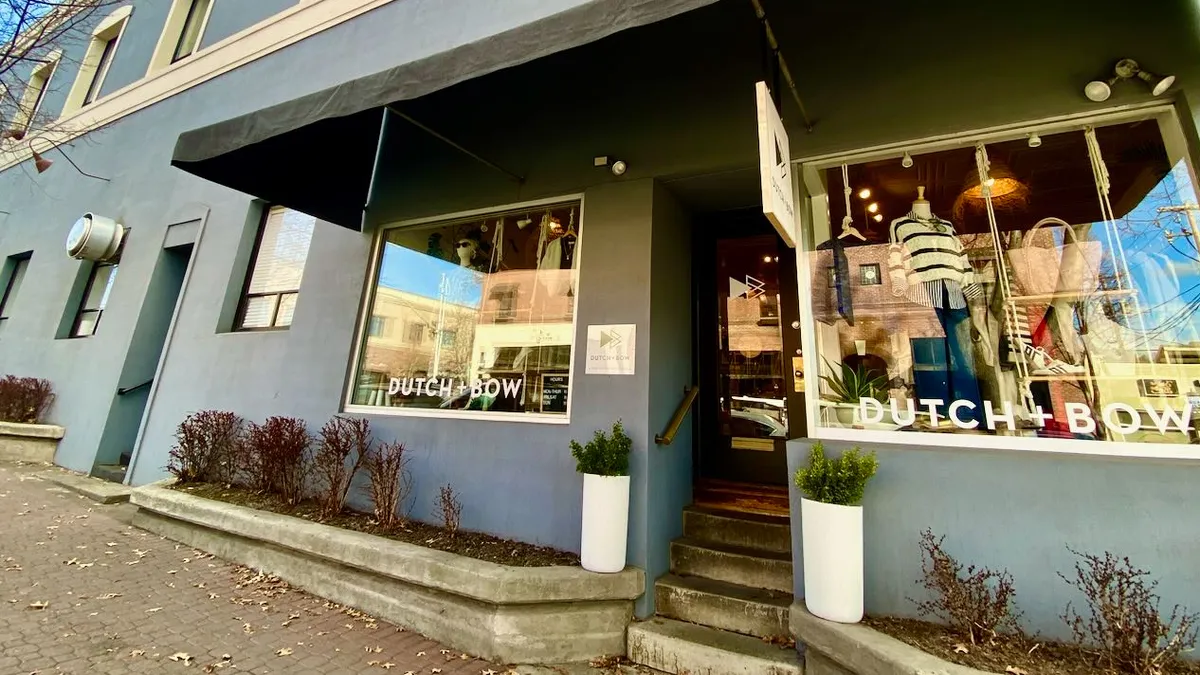The supply chain has never been so marketable. Same-day delivery, 2-day shipping, recyclable packaging, sustainable sourcing, free trade, free returns — they all endear consumers to one product or retailer over another. But few brands are fundamentally built on the quality of their supply chain.
Enter Bulletproof.
"We do definitely sell the supply chain and the purity of the products," Keith Bone, VP of supply chain, quality and regulatory operations at Bulletproof 360, told Supply Chain Dive. "The simplicity of the products that we're making and selling is a key component of the success we've seen to date."
At the heart of the Bulletproof diet and lifestyle is a hot cocktail of coffee, grass-fed clarified butter and a flavorless oil made from extracted medium chain fatty acids called MCT oil. The nutrients in the fats purportedly enhance brain function and provide long-lasting energy and satiety without blood sugar swings.
Self-proclaimed biohacker Dave Asprey, who plans to live to 180, is the founder of Bulletproof 360 and takes credit for developing the company's coffee recipe. The products entered Whole Foods Market stores in 2016.
But it’s not just the recipe that Asprey claims is the secret to feeling bulletproof — it’s the careful vetting of the supply chain for each ingredient, to ensure the most effective activated charcoal, the most bio-available glutathione, and above all, the cleanest coffee.
An industry vet tries a hand at disruption
Bone joined the company one year ago after 10 years at General Mills and a 1-year stint at Glanbia, with the task of stewarding Bulletproof's sourcing standards.
At General Mills, Bone worked on brands like Larabar, Annie’s Homegrown Organic and Epic Provisions, all fairly recent acquisitions and health-focused brands aimed at a conscious consumer.
"I definitely knew, when I was ready to do something, I wanted to do something smaller and help build it, and Bulletproof definitely fit the bill for that," said Bone.
He read Dave Asprey’s book "The Bulletproof Diet" while interviewing for the position and became "more and more of a believer" from there.
The Bulletproof brand coffee is Rainforest Alliance approved and made with a patented "bulletproof process" designed to eliminate toxins that Asprey says commonly accumulate on coffee through the supply chain.
He says mold easily grows on coffee before roasting and during storage, producing mycotoxins such as aflatoxin, Aspergillus and Ochratoxin A along with 26 others that Asprey claims cause headaches, gut issues and more. Claims that mycotoxins make it through traditional processing are hotly debated in the coffee industry and medical communities.
Beyond coffee, the other fat and protein products in the Bulletproof line are what Asprey views as the best and purest available — 100% grass-fed ghee, MCT oil made from 100% coconut sources, collagen from grass-fed cows ... the list goes on. Bulletproof products often come with superlative effectiveness claims.
“I definitely spent a lot of time asking questions to understand some of the questions that you're just asking. You know, how do we back up our claims? How do we make sure that what we're doing is true and legitimate?” said Bone.
Sourcing products to live up to these claims, and intentionally attracting customers with allergies comes with stakes. Some supply chains were out there, but some had to be developed with suppliers.
"The simplicity of the products that we're making and selling is a key component of the success we've seen to date."

Keith Bone
VP of supply chain, quality and regulatory operations, Bulletproof 360
One such product is the Brain Octane Oil, Bulletproof’s top-shelf MCT oil, which the company claims to be "more brain-boosting" that other MCT oils.
"We make a claim that it is sourced purely from free fatty acids from coconuts. That's a very difficult supply chain to maintain. We actually had to partner with the company that manufactures the raw oil for us to go all the way up into the supply chain to ensure that they were sourced only from coconuts; no palm oil," Bone explained.
Bone said the manufacturer had to separate Bulletproof’s business entirely from its other business and purchase new equipment. "One single partner with a longstanding exclusive agreement,” Bone said. "Strategically, what we do is we will partner and then develop a long-term relationship with them to make sure that we can uphold those agreements."
Bulletproof insists collagen, another health food of the moment, should come from 100% grass-fed cows. Most cows initially fed grass in the U.S. are transitioned to grain close to slaughter, so the company looked to Brazil.
"Brazil is the only country in the world that has a pure enough source of collagen that we feel comfortable making that claim," Bone said. There are other sources of grass-fed and finished collagen, but Bone said the company won’t take a risk on an operation with mixed supply. "We're not comfortable ensuring that those supply chains are kept separate in those other countries, so we source everything from Brazil,” he said.
Trust, verify and build relationships
After finding the right suppliers and partners, Bone’s team does exhaustive testing. "We test every lot for contaminants, for deviations; in some cases, multiple times," he said.
That level of verification is uncommon is his considerable experience, but he can imagine a day when that much testing is no longer necessary as the company locks in long-term relationships with suppliers – hard to do when scaling fast.
"Honestly, there's where I spend the majority of my time, ensuring the quality of the product and then ensuring that we have scaling strategies in place to scale with our massive growth," Bone said.
Long-term planning is key, he said, along with developing supplier relationships that feel more like partnerships.
"We pay a premium to ensure it's the quality that we want and that our process is adhered to," said Bone. "Then we test the heck out of it."























